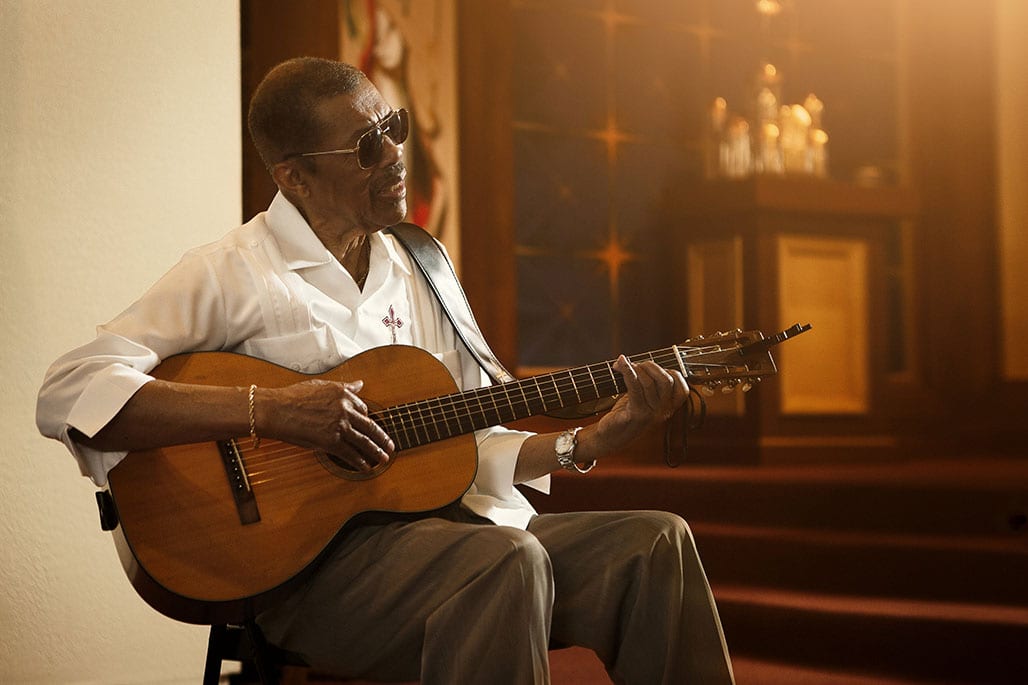September 25, 2013
Civil Rights Enforcer: Raised in segregation, Malaku Steen ’56 lived to fight it

By Liz F. Kay
Segregation in the South brought Malaku J. Steen ’56 to Rhode Island and Providence College. But the skills gained from his Catholic education took him across the United States, enforcing civil rights legislation by yanking the federal purse strings.
For more than a decade, Steen worked for the Department of the Treasury. As chief of the civil rights branch of the Office of Revenue Sharing, he traveled to communities that received payments of federal taxes to ensure they obeyed the law.
“I was one of the most influential people in civil rights enforcement,” Steen said. “If [President Richard] Nixon had known what he was signing, he never would have signed the law.”
A native of Washington, D.C., Steen had no local Catholic options for high school. “There were no Catholic high schools in D.C. that were integrated,” he said.
But the son of a good friend of Steen’s father attended Mount St. Charles Academy in Woonsocket, R.I., then a boarding school. Rhode Island was a very different place for a young boy who, until then, had only left home for summer camp.
“I never learned to swim, but I sure knew how to ice skate,” Steen said.
His college choice was easy. The organization Catholic Scholarships for Negroes offered an award to Providence College. It was reserved for a black male student graduating from a Catholic high school in 1952, and he was the only person who was eligible.
During Steen’s freshman year he was the only black student in his class, and one of only three students of color in the school. The English major spent spare time playing cards and shooting pool in the basement of Aquinas Hall with students from New York and elsewhere.
Steen also joined the Glee Club, but while traveling to Washington on a performance tour, he stayed with his family while other club members stayed at a segregated hotel downtown.
“We didn’t have any strings attached to discrimination laws—just a big old rubber band.”
—Malaku J. Steen ’56
After graduation, he worked as a clerk-typist at the Library of Congress before leaving for Fort Benning, Ga., to fulfill his draft obligation. He served in Germany as a U.S. Army engineer.
He returned to the Library of Congress after his military service, “but I wasn’t getting anywhere.”
Career comes into focus
Steen then considered law school, since he had handled all the court martials and board actions as the court and boards clerk in his engineer battalion.
Also, he remembered that after the bus boycott in Montgomery, Ala., jailed protesters had to pay $100. “If I were a lawyer, I’d get them out of jail for free,” he thought.
Through the PC Club of Washington, he met John Fanning ’38, then a member of the National Labor Relations Board (NLRB). With Fanning’s recommendation, Steen enrolled in law school at night at The Catholic University of America. He was one of three black students in a class of 54. “I studied very, very hard,” he said. “I read all the books, and I did research.”
Afterward, he joined Fanning’s administrative staff, where he was the only black employee. Steen remained at the NLRB until a board member connected him with Samuel R. Pierce Jr., who had been appointed general counsel for the Department of the Treasury. Steen called him “Uncle Sam.”
“Uncle Sam said he didn’t have too many blacks on staff,” Steen said, and he needed an attorney with labor law experience.
The treasury department’s authority offered a unique opportunity in the fight for civil rights. Treasury had jurisdiction over banks because they sold savings bonds, noted Steen, who added that the department used this power to fight discrimination.
“I was one of the most influential
people in civil rights enforcement.
If [President Richard] Nixon had
known what he was signing, he
never would have
signed the law.”—Malaku J. Steen ’56
In the 1970s, the department began enforcing civil rights legislation by leveraging its oversight of revenue sharing, in which the federal government returned a portion of federal taxes directly to more than 40,000 jurisdictions — totaling as much as $6 billion nationwide.
Cities like Chicago got millions of dollars in payments every quarter. The money went to public safety, transportation, education, and other areas. The funds also could be taken away for violations of civil rights laws.
“Wherever they put their money, [Treasury] had jurisdiction for civil rights purposes,” said Steen.
For example, Dover, Del., put its revenues into the volunteer fire department, which had discriminatory practices — applicants were required to get recommendations from two current firefighters to be hired, Steen said. But the fire chief and his deputy were on the city council, and they understood the civil rights provisions didn’t just call for withholding future payments — it required violating municipalities to pay back any money ever received.
“We didn’t have any strings attached to discrimination laws — just a big old rubber band,” Steen said.
It was more effective than the U.S. Equal Employment Opportunity Commission, because it had no powers of enforcement, he said.
In Beaumont, Texas, officials put the cash into public works, “but black kids didn’t have any sidewalks to walk to school,” Steen said. He got the public works director to agree to build sidewalks for them, even though the director said his own daughter didn’t walk on a sidewalk to school.
A representative of the Texas governor’s office later called Steen’s boss and informed him that Steen had been telling them how to spend their revenue-sharing funds. Steen’s boss told the governor’s representative that Steen spoke for him.
“Without their support I wouldn’t have been worth two cents,” Steen said.

After three decades of public service, Steen went into private practice, handling wills and estates. He retired about 20 years ago and celebrated his 55th wedding anniversary with his wife, LaVernis, this year. They have two daughters and a son.
He taught himself to play the guitar in the 1960s and sings with the folk group at St. Andrew the Apostle Church in Silver Spring, Md. “Sometimes, when I get in the mood, I write music — church music,” he said.
His experience at PC made his faith stronger. “I couldn’t have survived without the faith,” he said.
It also prepared him for his career.





